Bridge asked readers to swap news sources for a week. The world answered. (slideshow)
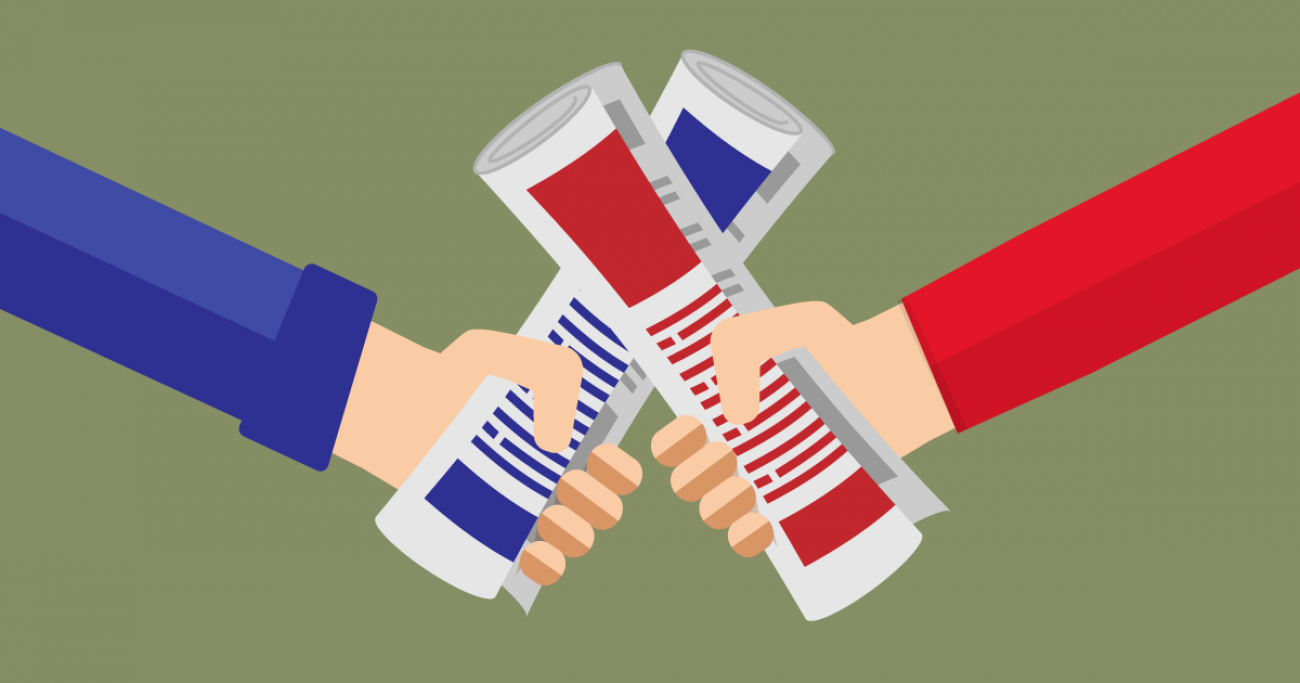
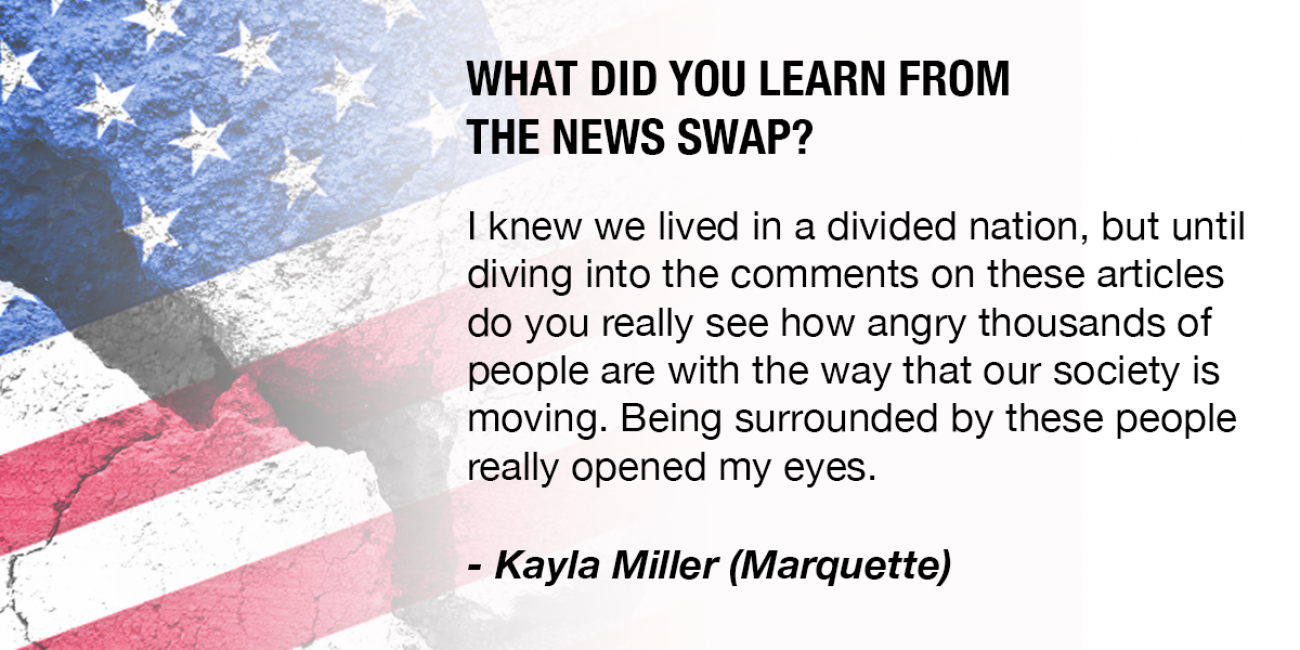
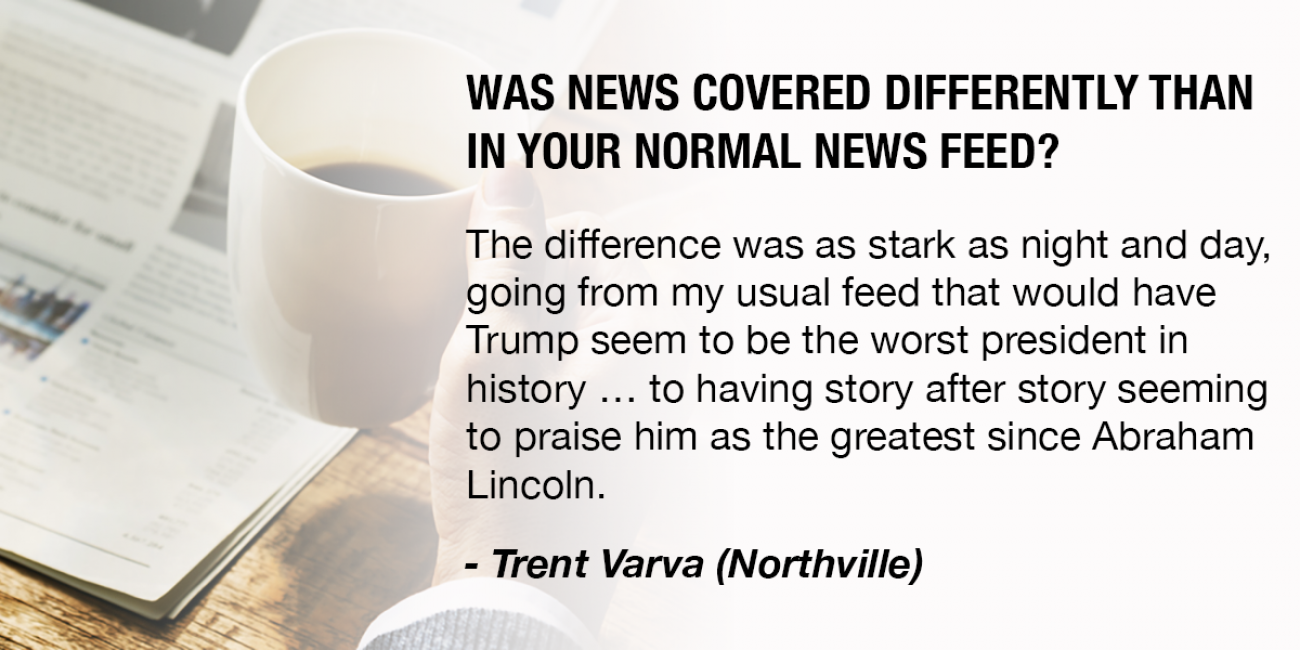
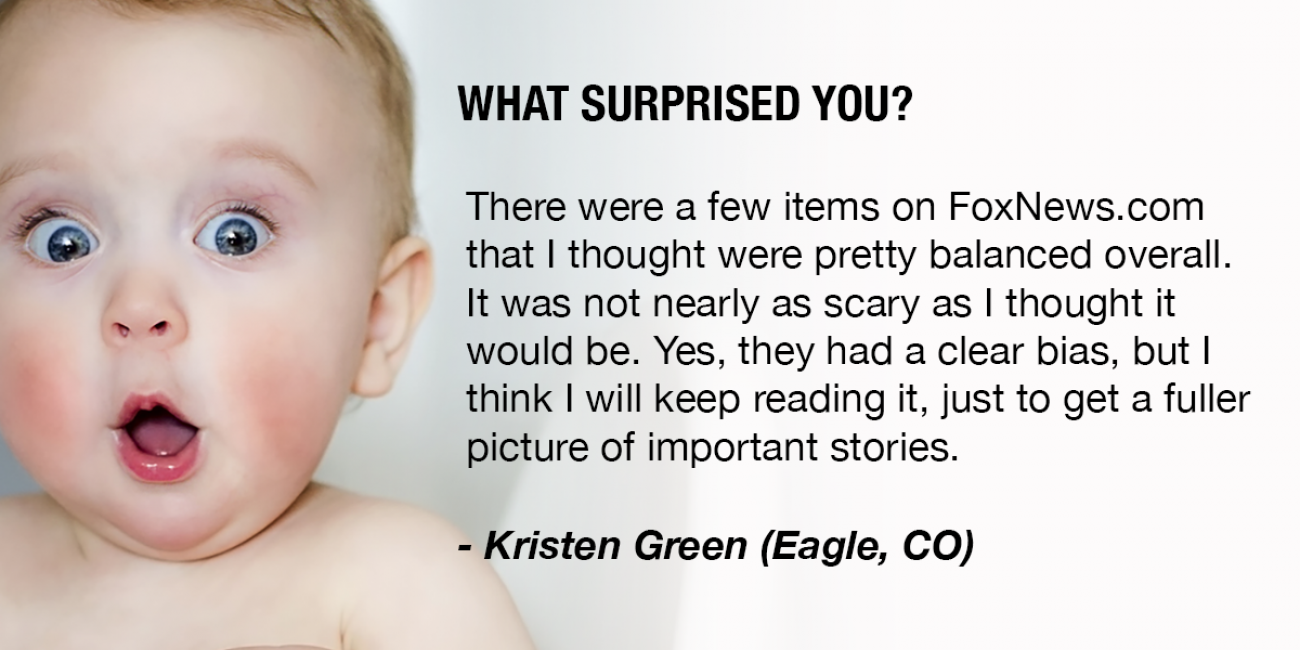
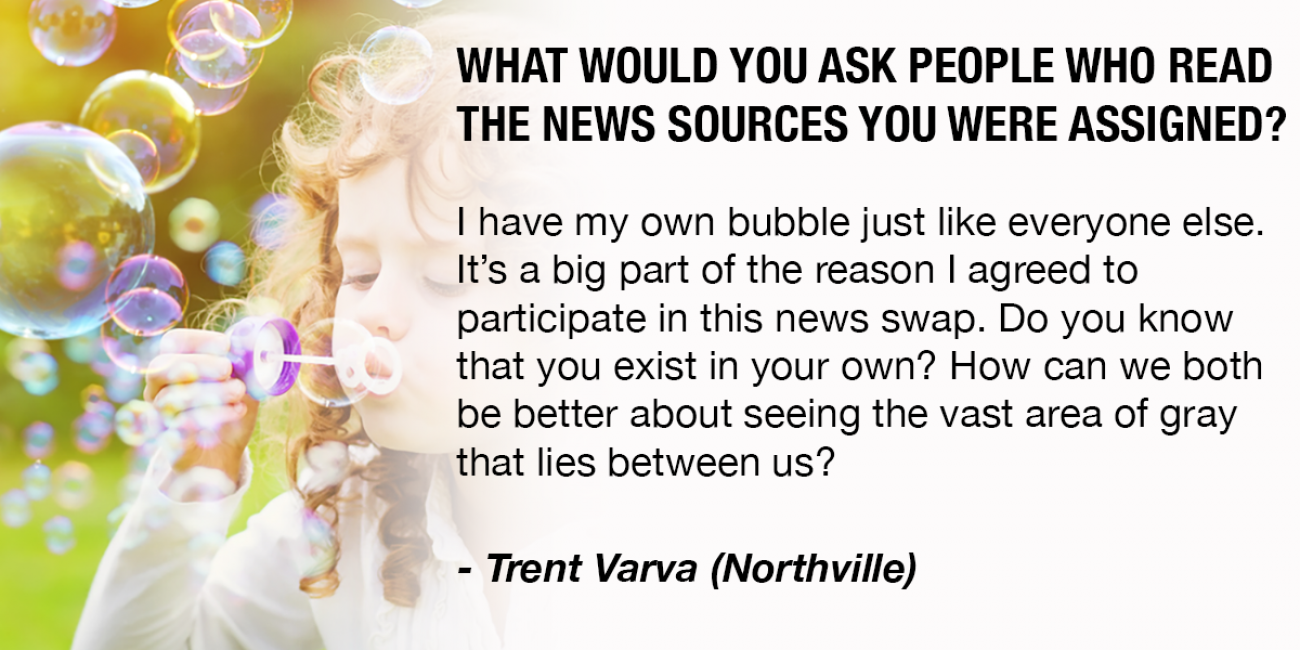
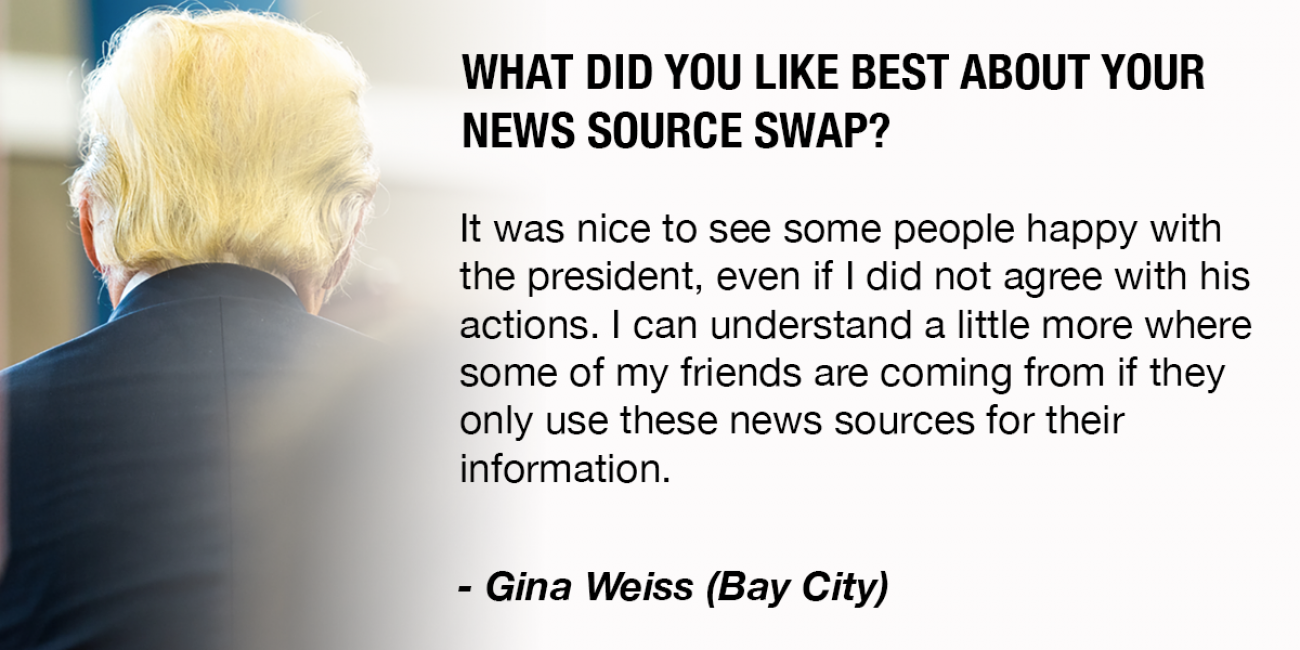
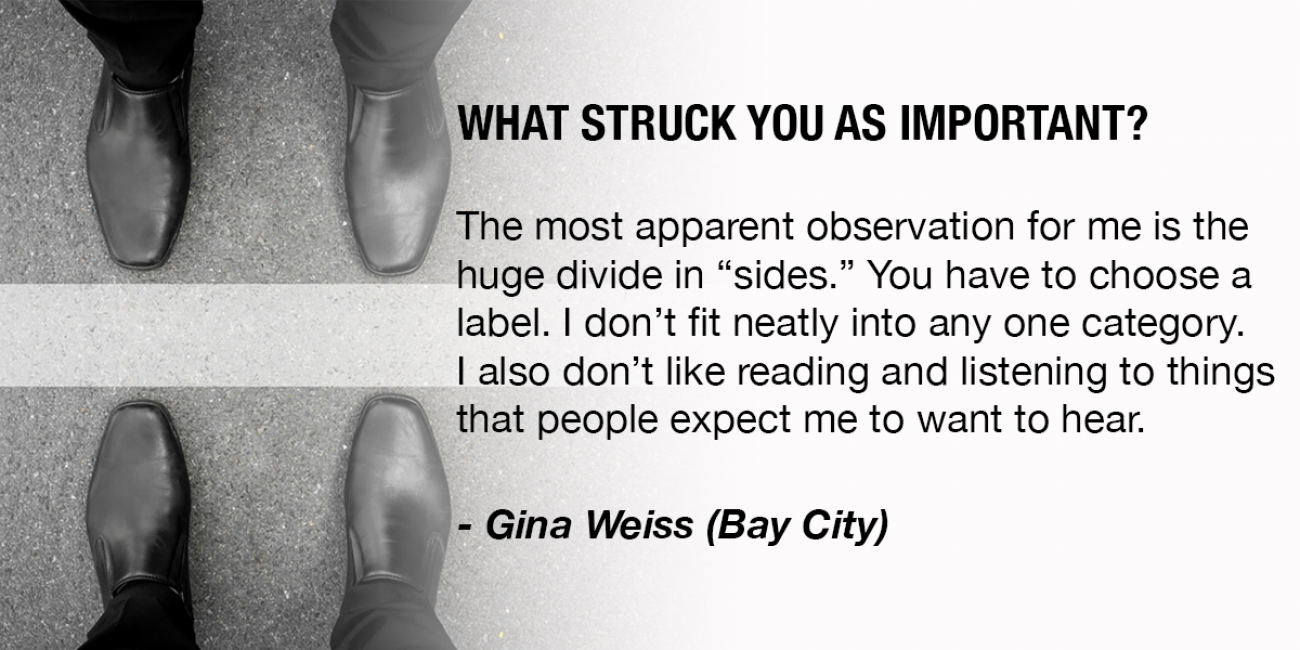
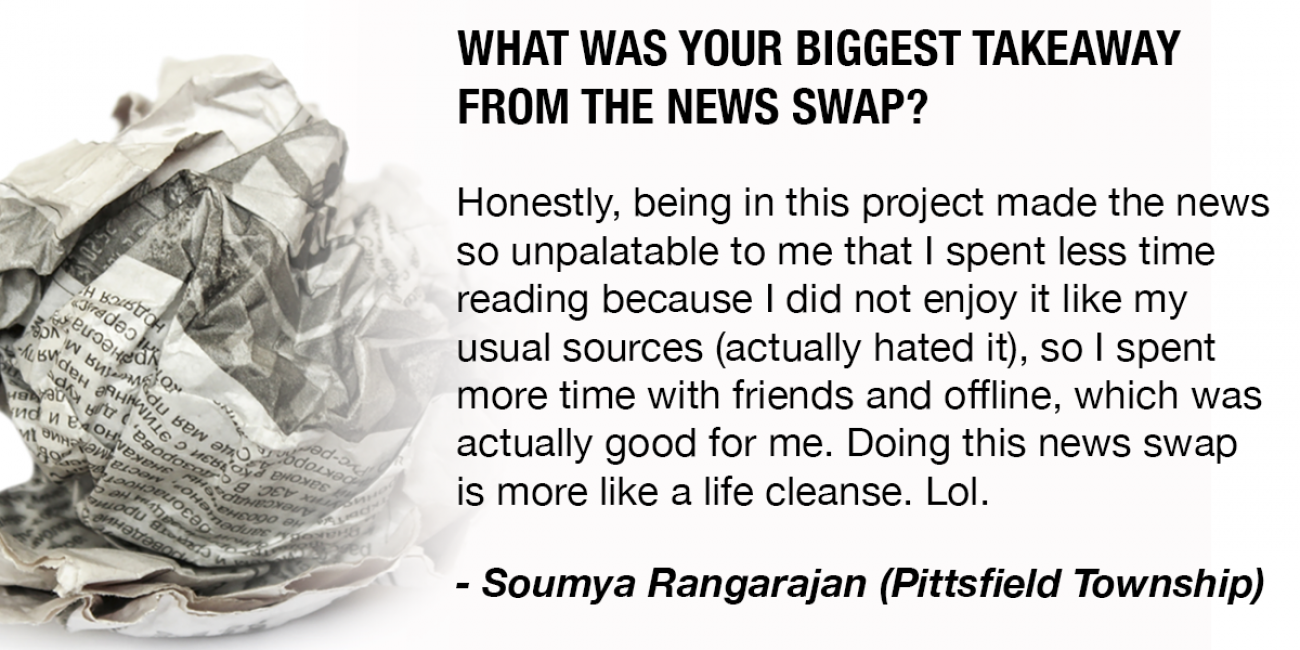
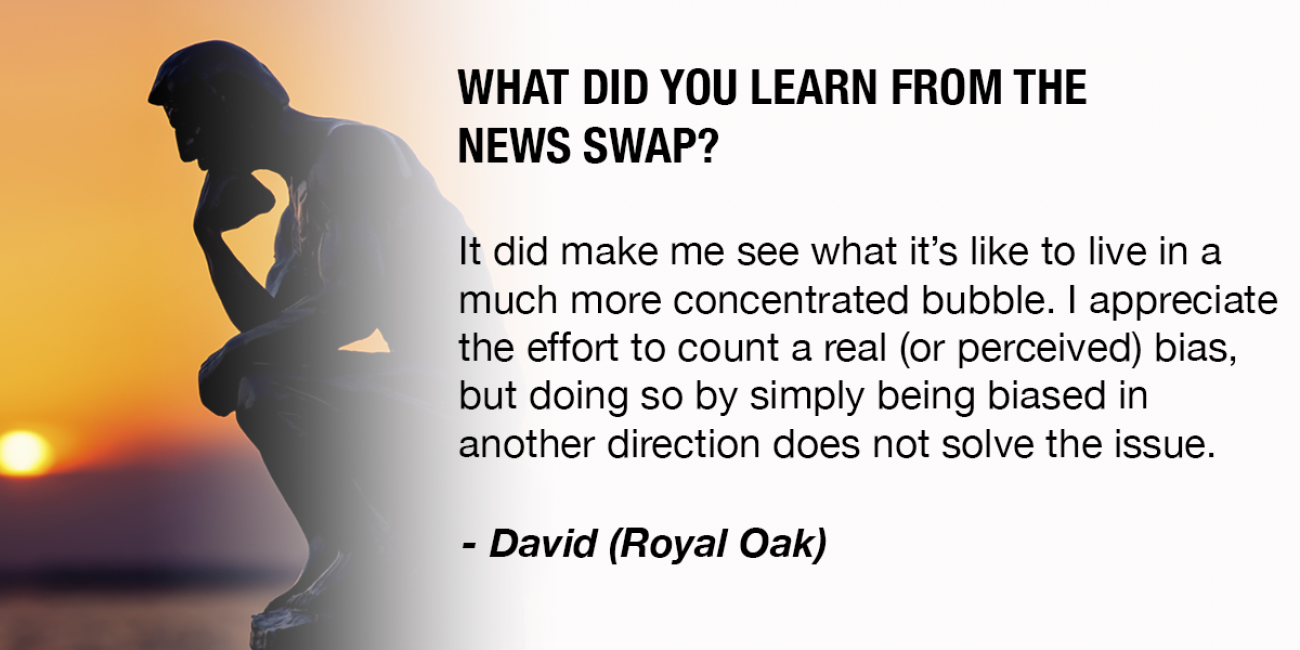
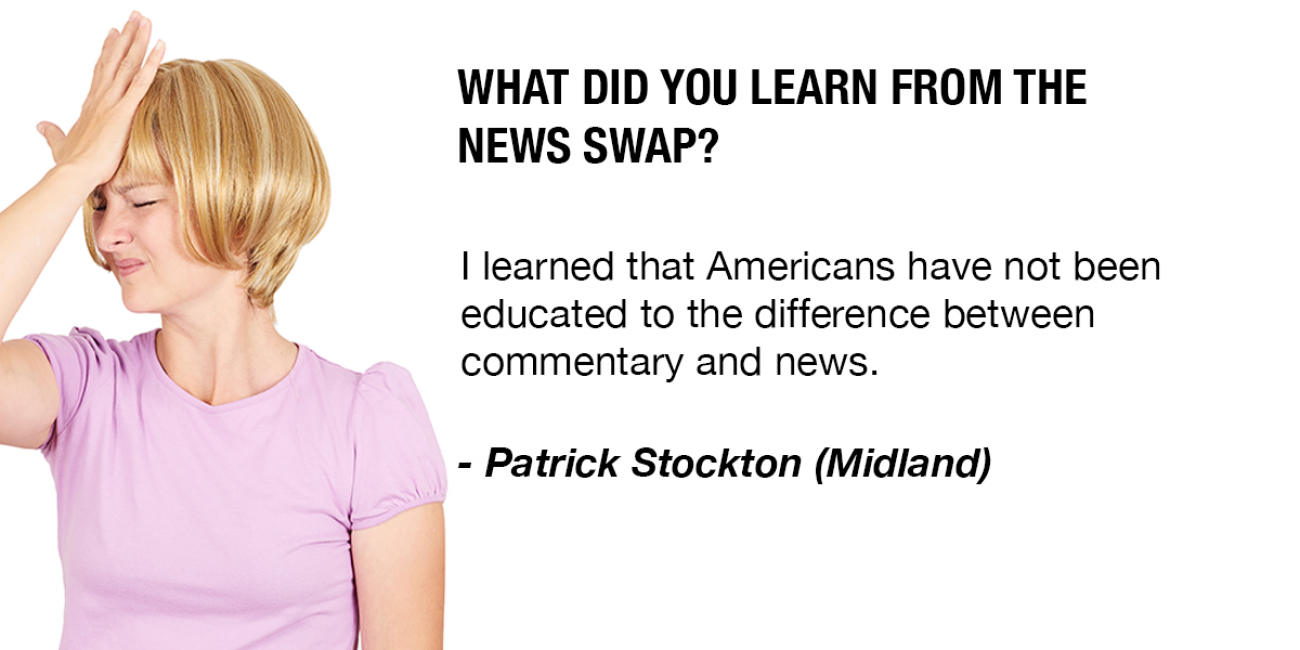
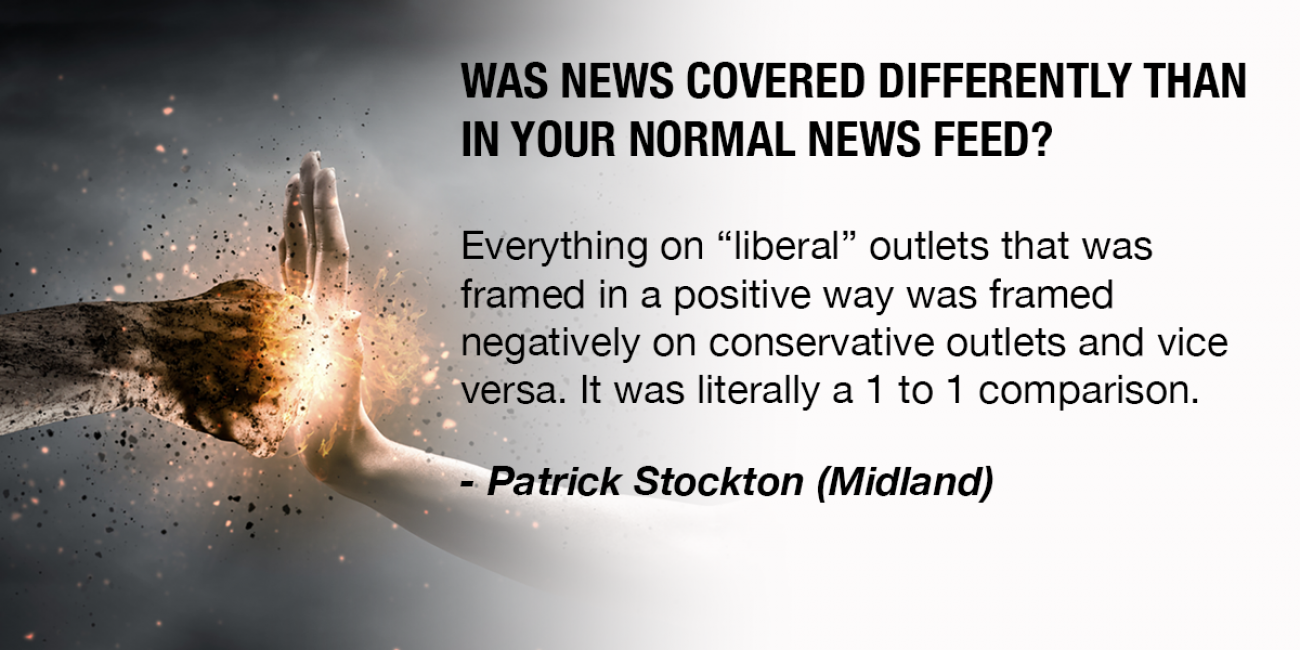
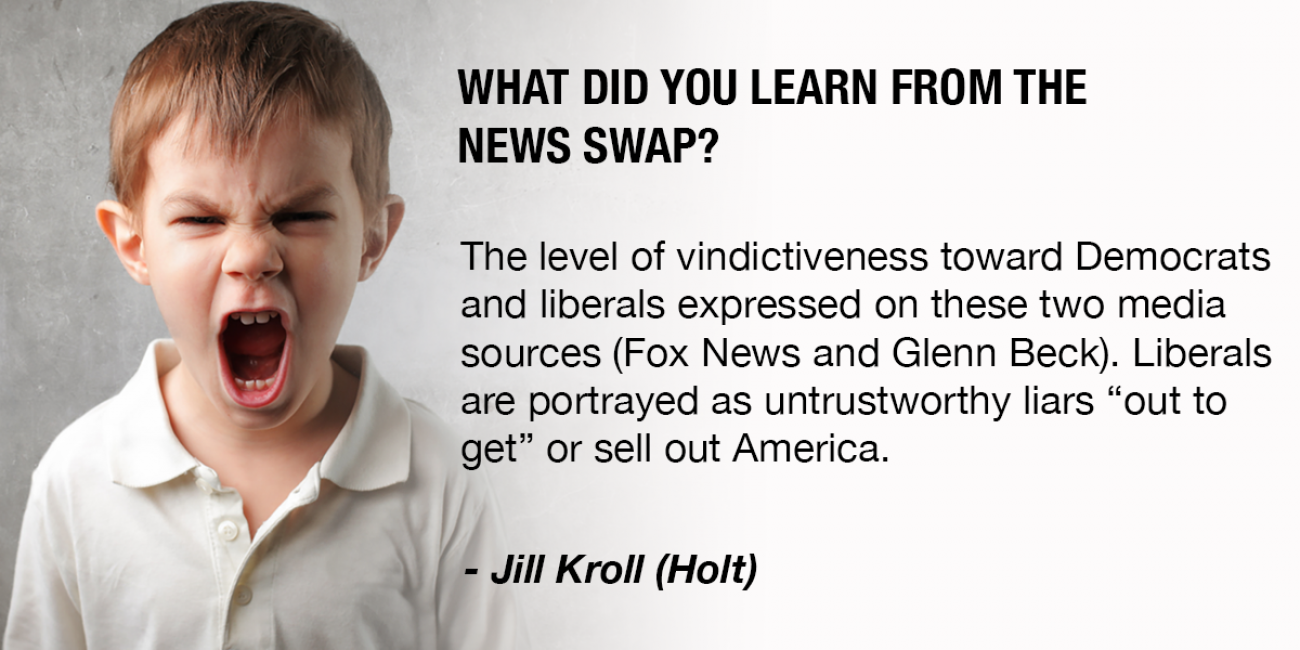
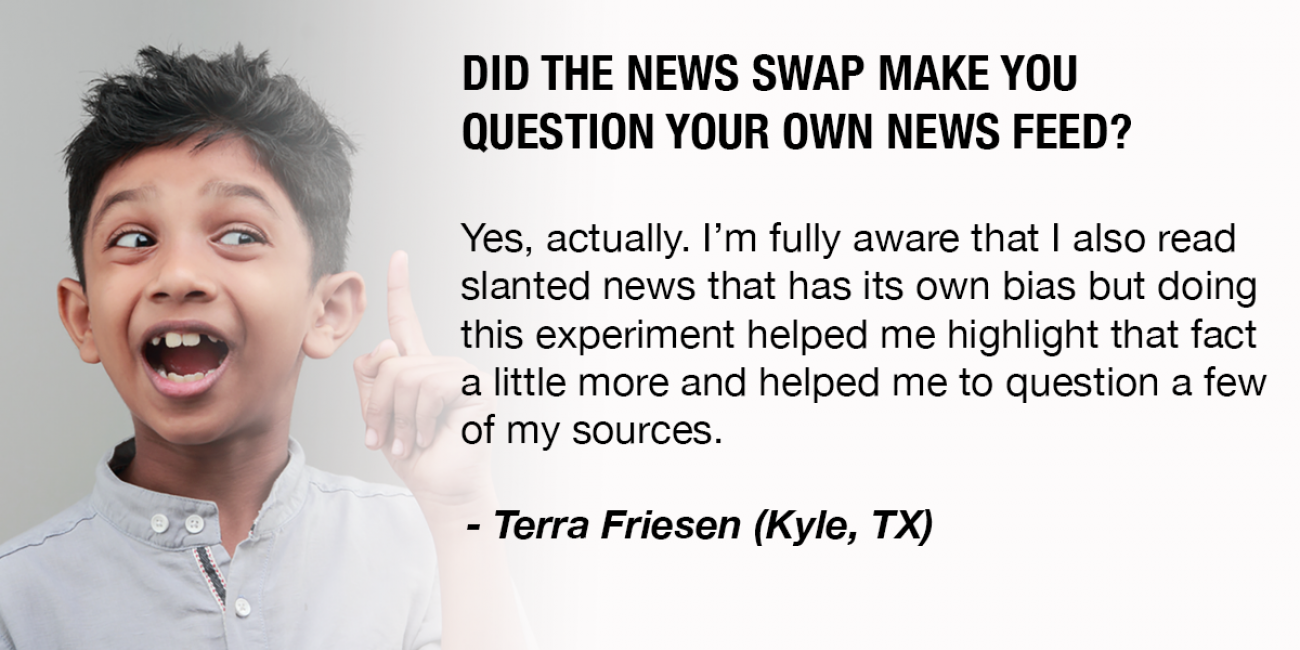
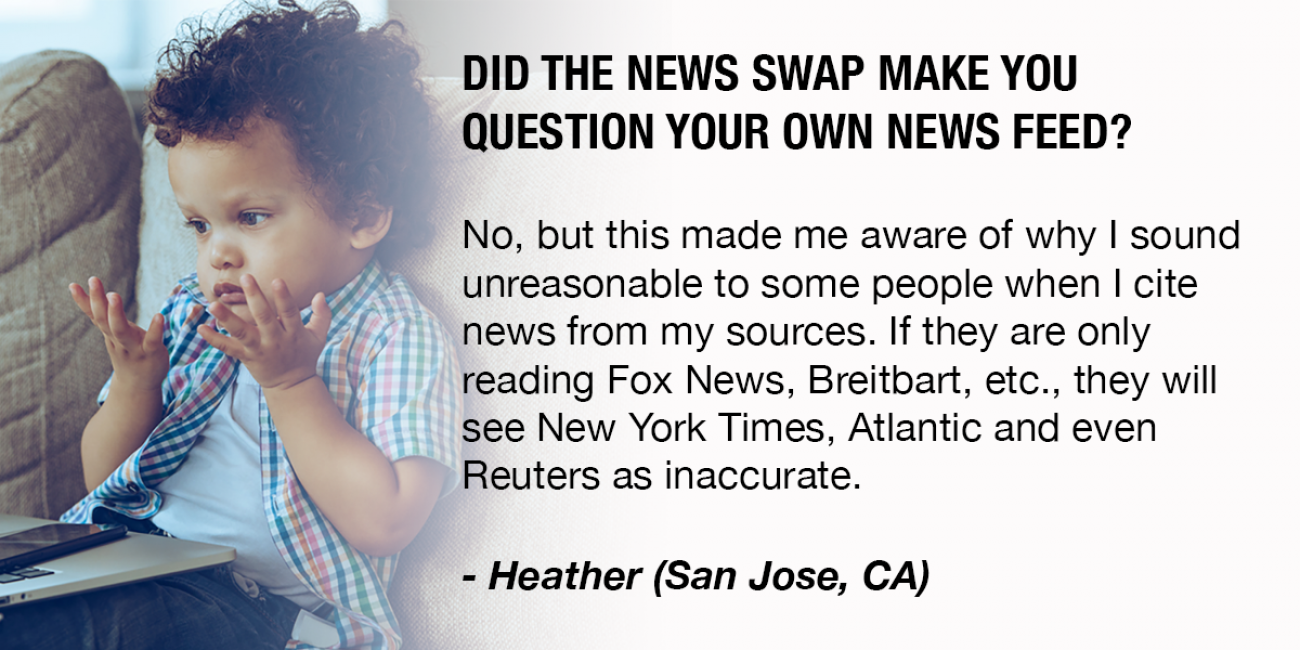

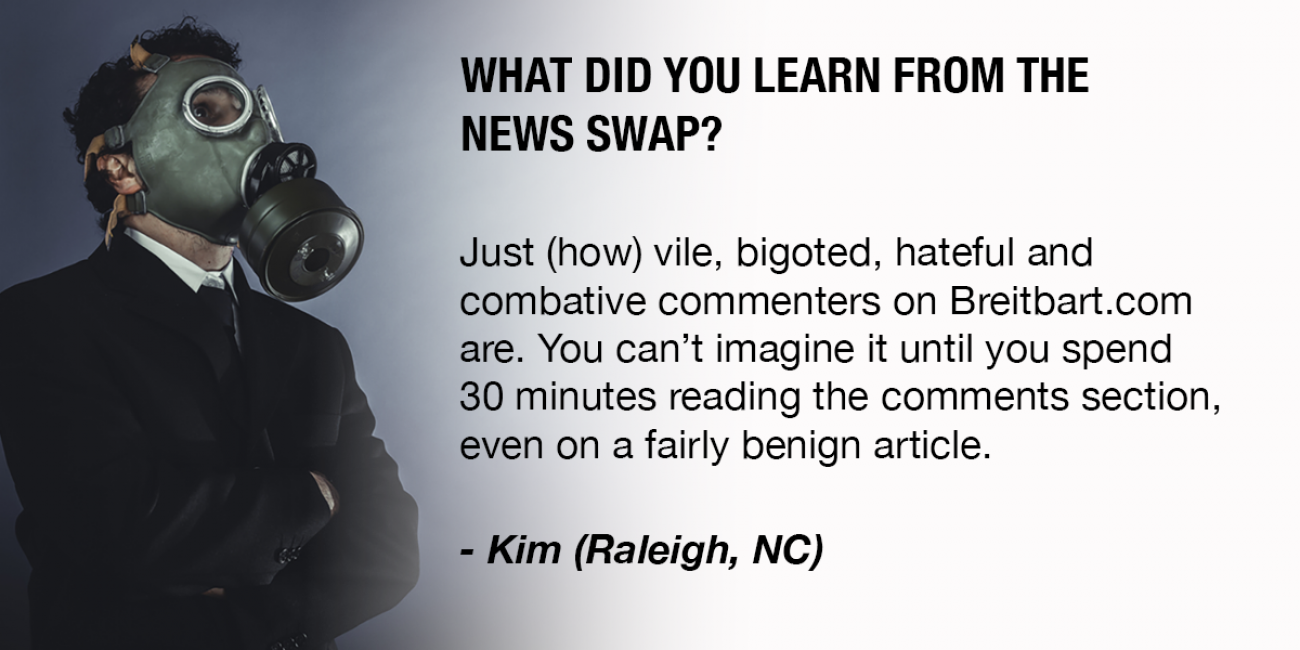
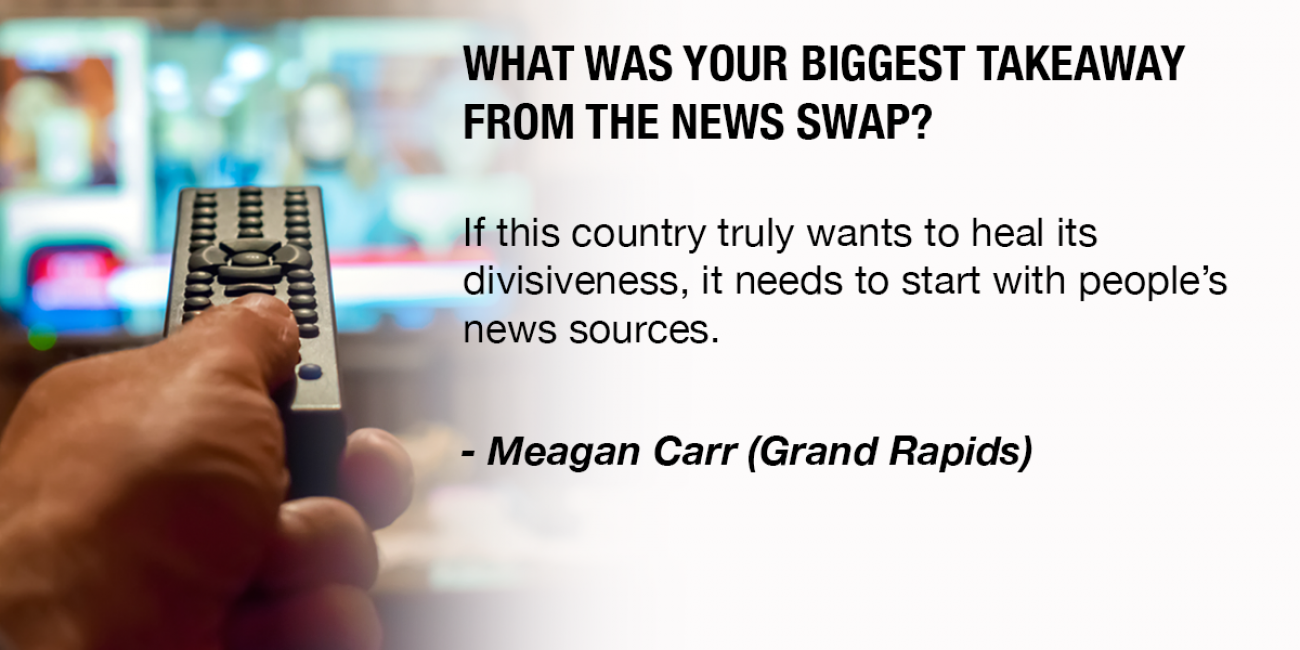
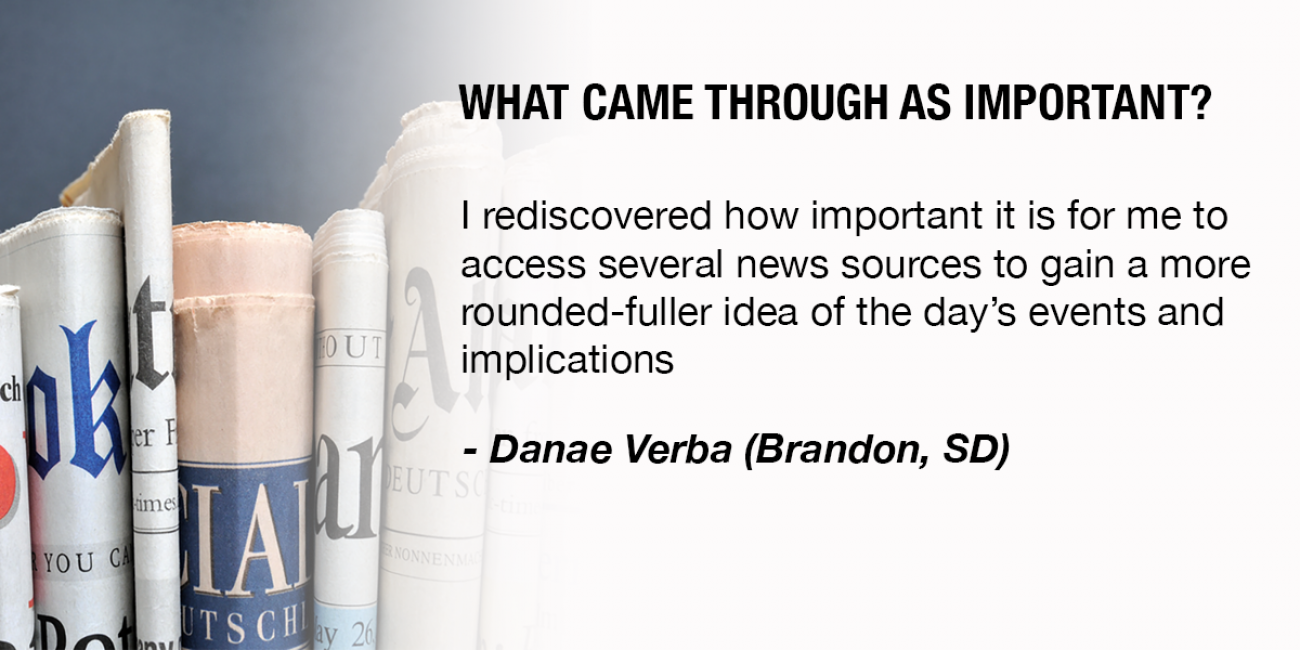
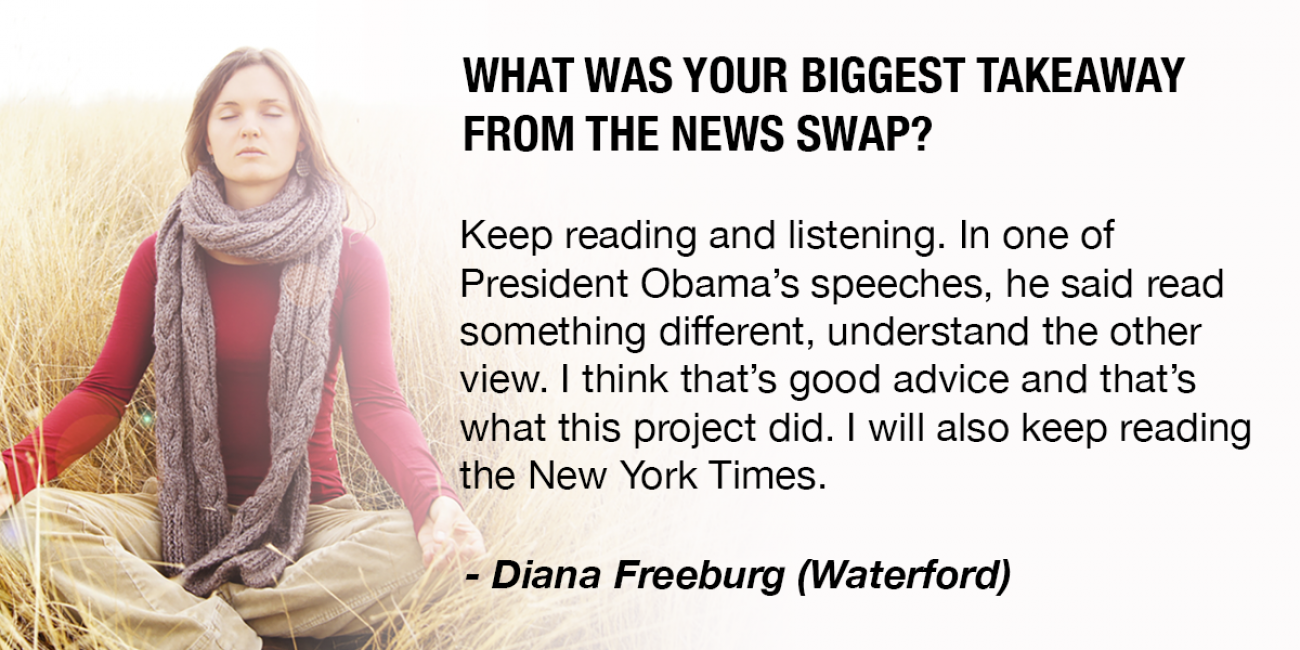
On a Friday in April, Kayla Miller of Marquette, Mich., performed a painful purge on her iPhone. She dropped news notifications for multiple news sources and signed off of social media. In their place, Miller added news feeds for three sources she was unfamiliar with.
Miller was one of more than 200 people spread across all corners of Michigan, 36 states and six nations to accept Bridge Magazine’s challenge: spend a week looking at the world through the news sources of people with different political views. Their responses ranged from horror (“Propaganda straight from Goebbels”), to relief (“it wasn’t as scary as I expected”).
The reaction of Miller, who just graduated from Northern Michigan University, was typical. She said she felt “disappointment and sadness” reading news sources that included The Federalist the New York Post and Glenn Beck that were more conservative than her normal news diet.
Yet like many participants, Miller also ended the exercise feeling something that seems rare today: political empathy.
“I know that many of these people … believe what they (want), which many times is diametrically opposed to what I want, is what’s best for the U.S.” Miller wrote to Bridge. “I want to broaden my news reading to even more sites and from different perspectives. I hope everyone can learn that lesson.”
The reader news swap was prompted by an April 6 Bridge article in which a Troy conservative and two Ann Arbor liberals swapped news feeds for a week. It didn’t go well. That story is part of Bridge Magazine’s Michigan Divided project, in which we are following 11 Michigan families and residents with different backgrounds and political views. They agreed to participate as an experiment in piercing the political and cultural bubbles they, and many of us, live in.
You can read about their experiences here.
[CLICK OR SWIPE THROUGH THE SLIDESHOW ABOVE TO SEE SOME OF THE BEST QUOTES FROM OUR NEWS BUBBLE SWAP PARTICIPANTS]
A small notice at the bottom of that story offered readers a chance to try a news swap themselves: Bridge would match them with someone with a different politically-leaning news bubble for a week.
The response was overwhelming: 236 people asked to participate in a news swap. People from Maine to Hawaii and Marquette Michigan to Phnom Penh, Cambodia signed up (Readers in France, Canada, the U.K. and Australia also volunteered).
Because there were more left-leaning than conservative volunteers, many participants could not be matched with their ideological counterpart, so they were given news feeds considered politically opposite by All Sides Bias Ratings, a site that, through reader input, places news sources on an ideological scale. For example, Bridge matched the Washington Post, with its centrist to Democrat-leaning editorial page stance, with the editorially conservative Washington Times, and the liberal comedy news show The Daily Show with clips of conservative comedian and pundit Dennis Miller on the Fox News show The O’Reilly Factor.
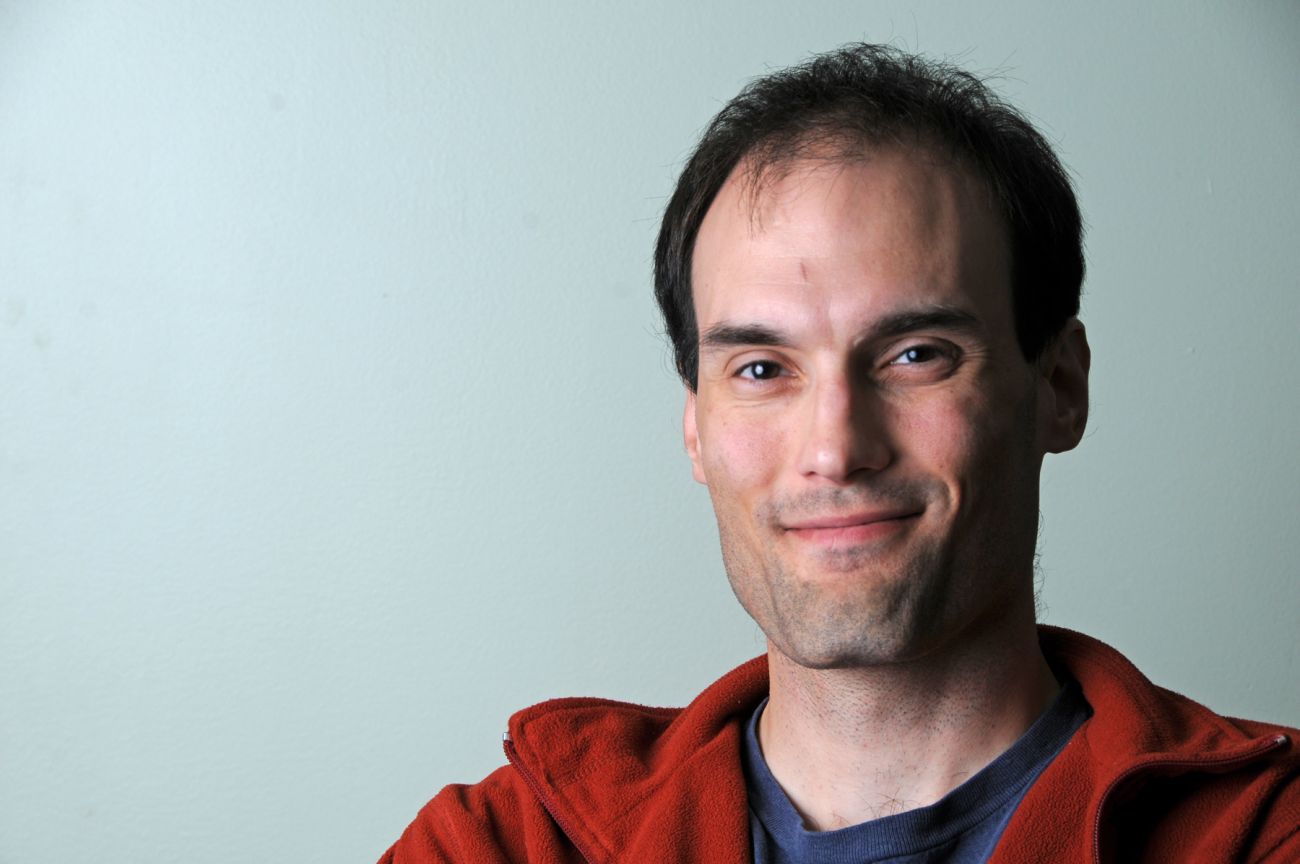
“The manner in which this was done turned out to be more interesting than I would have suspected,” wrote Ryan Lewis of Plainwell, a town north of Kalamazoo. “‘Stop listening to your normal sources, listen to these others’ wound up painting a clearer picture of where my sources end. If I had simply added a few other sources to my news diet, I think it’s more likely I wouldn’t have noticed any insights.”
A generation ago, such an exercise wouldn’t have been necessary, since Americans had many of the same news sources; they were more likely to subscribe to the same daily newspapers, or watch one of three network evening newscasts. There was no Fox News or MSNBC. There was no Huffington Post or Breitbart.
Today, conservatives and liberals can browse a media buffet and curate the sources that match their worldview. “There’s no way to fix this divide,” wrote Rachel Spires of Dallas, Texas. “The fundamental beliefs of people are so diametrically opposed that the only solutions are for one side to drag the other kicking and screaming into the future or split up the country and each govern the way we want and see whose ideas fare better.”

“The bubbles are real and they are thick,” wrote Trent Varva, a recent college grad and current stay-at-home dad in Northville, Mich. who normally reads The Atlantic and Vox. “It’s really no wonder that the American public is so divided and struggles to even agree on basic facts when the narrative that guides the media on either side is so polarized.”
Some participants received an unexpected benefit from the news swap: time away from the news.
“I wanted to do the experiment right, so I didn’t go onto Facebook and told my friends not to send me news articles,” wrote Adaliz Merced-Colon of Abilene, Texas, a liberal Puerto Rican national whose husband serves in the U.S. Air Force. “I didn’t realize how much of my routine I spent just consuming news: listening to NPR as I drove my son to school, or on my Alexa, all the notifications I get from different sources. I ignored them all week and only read the three sources assigned (Glenn Beck, Washington Times and the Associated Press) and it was a less stressful week.”
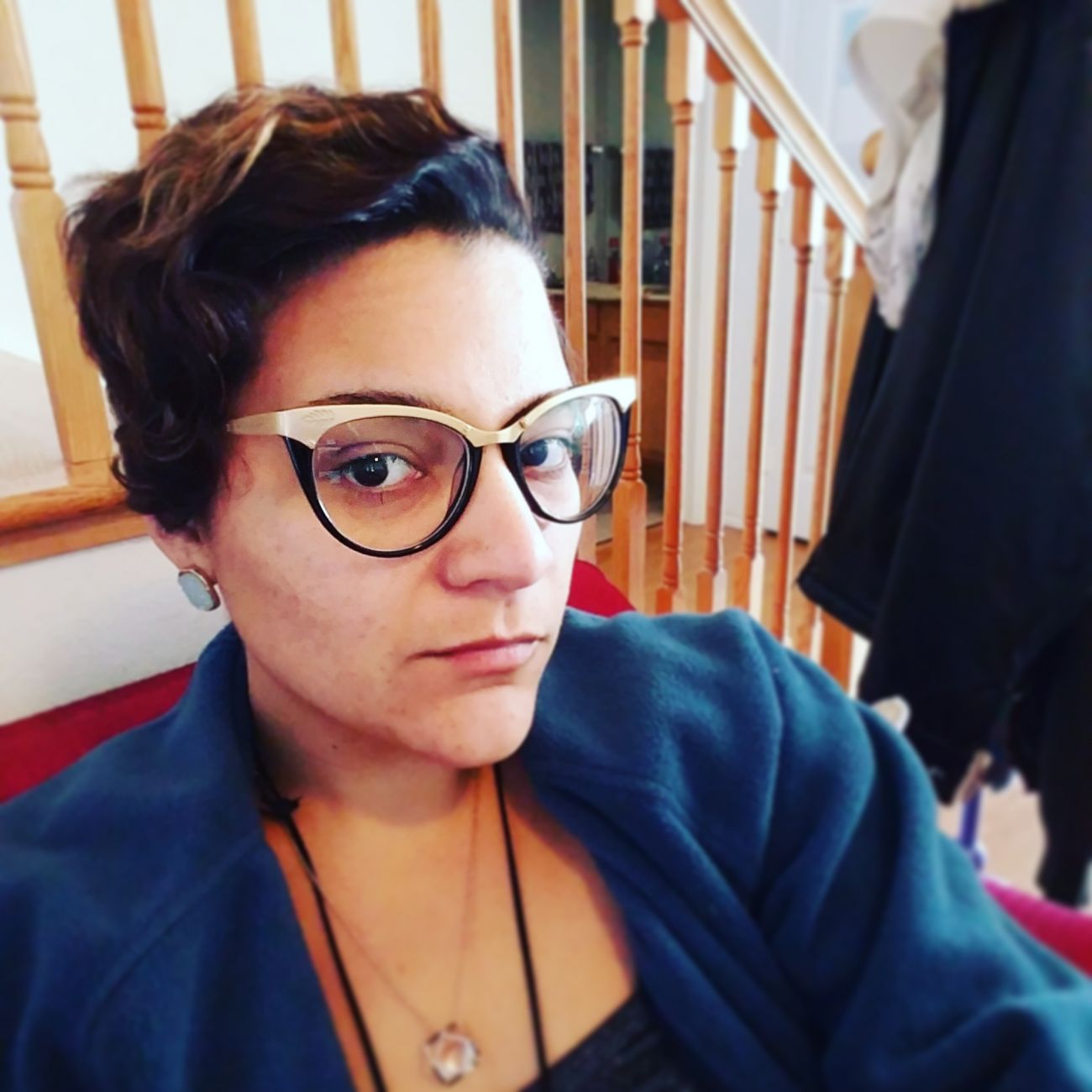
“Many of the articles I read got me thinking because they were presented in a way I hadn’t seen before,” said Chris Jansen of Longmont, Colorado, who cited a New York Post profile of Environmental Protection Agency head Scott Pruitt that “put a positive spin .. where in most of the news I had read about him (in his normal news sources), he has been widely criticized.”
Lorin Burgess of Ann Arbor, Mich., had a similar experience. “I learned there are serious conservative thinkers,” wrote Burgess, whose sources for the week included the Washington Times and Fox News, “and despite disagreeing with their core assumptions, I thought their writing was clear and well thought-out.”
“I learned there are serious conservative thinkers, and despite disagreeing with their core assumptions, I thought their writing was clear and well thought-out.” - Lorin Burgess, Ann Arbor, Mich.
Varva told Bridge by email he is still reading the conservative news sources assigned to him for the experiment last month, which included the New York Post and the Daily Caller. “I will continue to endeavor to pierce my own bubble more frequently than I have in the past, as difficult as it may be,” Varva said.
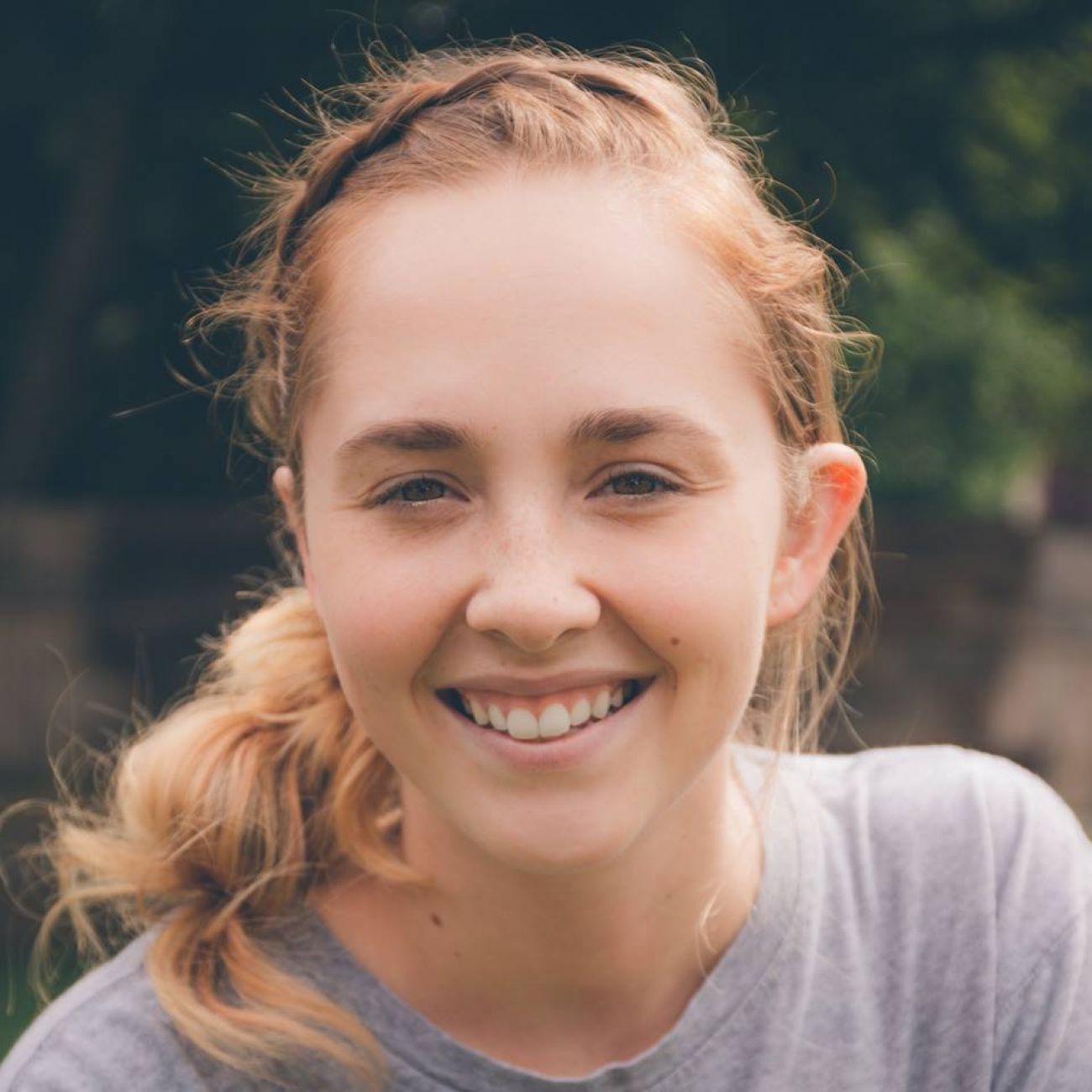
Miller, the recent NMU grad and former executive editor of the campus newspaper The North Wind, said the exercise opened her eyes in ways she didn’t expect.
“It opened my eyes to just how small some perspectives can be, and how important it is to broaden our worldview and look outside our own way of life,” Miller said.
“Participating in experiments such as this give us the perfect opportunity to really reflect, analyze and make clear decisions on what information we are putting into our minds.”
See what new members are saying about why they donated to Bridge Michigan:
- “In order for this information to be accurate and unbiased it must be underwritten by its readers, not by special interests.” - Larry S.
- “Not many other media sources report on the topics Bridge does.” - Susan B.
- “Your journalism is outstanding and rare these days.” - Mark S.
If you want to ensure the future of nonpartisan, nonprofit Michigan journalism, please become a member today. You, too, will be asked why you donated and maybe we'll feature your quote next time!




